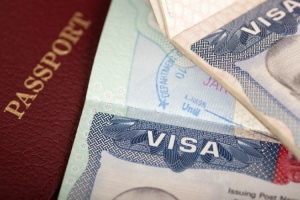By Emmanuel Opoku Acheampong
Alice has recently received an invitation letter to participate in a 5-day conference in Oxford, UK. Alice’s employers have stated that they will pay for the full cost of her trip.
Alice has made previous visits to Germany, South Korea, Dubai and South Africa. She visited Germany in 2014. She was also recently refused a German visa in December, 2015.
On her UK Visa Application Form (VAF) Alice has been invited to respond to this question: “Have you traveled outside your country of residence, excluding the UK, in the last 10 years?” Alice answers “yes” and writes down Germany, South Korea, Dubai, and South Africa. To what extent would Alice’s previous travels to these countries count in assessing her intentions for the visa?
What are the rules on travel history?
Under UK immigration rules, “travel history” is a pattern of travel that shows that an applicant has made previous visits to certain countries. These are the UK, USA, Canada, Australia, New Zealand, Ireland, Schengen countries or Switzerland.Examples of Schengen countries are Germany, France, Italy, Portugal, etc.
A pattern of travel to any of these countries may indicate that an applicant is a genuine visitor.However, travel history is not the only consideration in assessing a person’s intentions for the visa. The ECO must consider all relevant information including any social and economic factors of the applicant.
How will the ECO assess Alice’s travel history?
The Rules use the term “a pattern of travel”. A “pattern” denotes “order”, “systematic”, “sequence”, etc. To qualify as travel history there must be a sequence to the travel. Alice previously travelled to Germany in 2014. Germany is a Schengen country and therefore a listed country. However, a previous single travel to the Germany is not a pattern of travel and may not qualify as travel history under the Rules.
The facts further show that Alice was recently refused a German visa in December, 2015. Under the Rules, the ECO may not consider travel history if there has been a change in circumstances since the previous visit. Thus even if the ECO was minded to consider Alice’s single visit, her recent visa refusal may cause him or her to discount the previous visit in Alice’s favour.
Previous visits to countries other than those listed
The facts show that Alice has also made previous visits to South Korea, Dubai and South Africa.The countries listed under the Rules are the UK, USA, Canada, Australia, New Zealand, Ireland, Schengen countries or Switzerland.
Clearly, South Korea, Dubai and South Africa are not among the listed countries. Therefore, a pattern of travel to countries other than the ones listed may generally not count as evidence of travel history. Alice, therefore, cannot rely on her previous travels to those countries as evidence of her travel history; no matter the number of previous travels she may have made.
What if Alice had evidence of travel history?
If Alice had made previous visits to say, the UK, Germany France and Australia that would count as evidence of travel history. However, travel history is only a part of all the evidence the ECO will consider.
The ECO cannot rely only on travel history as the sole basis in assessing Alice’s intentions but must consider it in conjunction with her social and economic ties.
For example,if the ECO made a finding on the evidence that Alice’s employer did not have sufficient means to pay for Alice’s visit; this would be a factor the ECO will take into account in assessing Alice’s overall intention for the visa.
Conclusion
Travel history may count in assessing your intentions for a visa. It is however not a sole criterion. The ECO may take account of your travel history, in addition to your social and economic factors in assessing your intentions.A single travel to a specified country would generally not count as travel history much the same way as repeated travels to countries not specified under the Rules.
Disclaimer: This article only provides general information and guidance on UK immigration law. The specific facts that apply to your matter may make the outcome different than would be anticipated by you. The writer will not accept any liability for any claims or inconvenience as a result of the use of this information.
The writer is an immigration law advisor and a practicing law attorney in Ghana. He advises on U.S., UK, and Schengen immigration law. He works for Acheampong & Associates Ltd, an immigration law firm in Accra. He may be contacted on acheampongassociatesgh@gmail.com
Opinions of Wednesday, 31 August 2016
Columnist: Emmanuel Opoku Acheampong
UK Visit Visa: How does my travel experience count?
Entertainment














